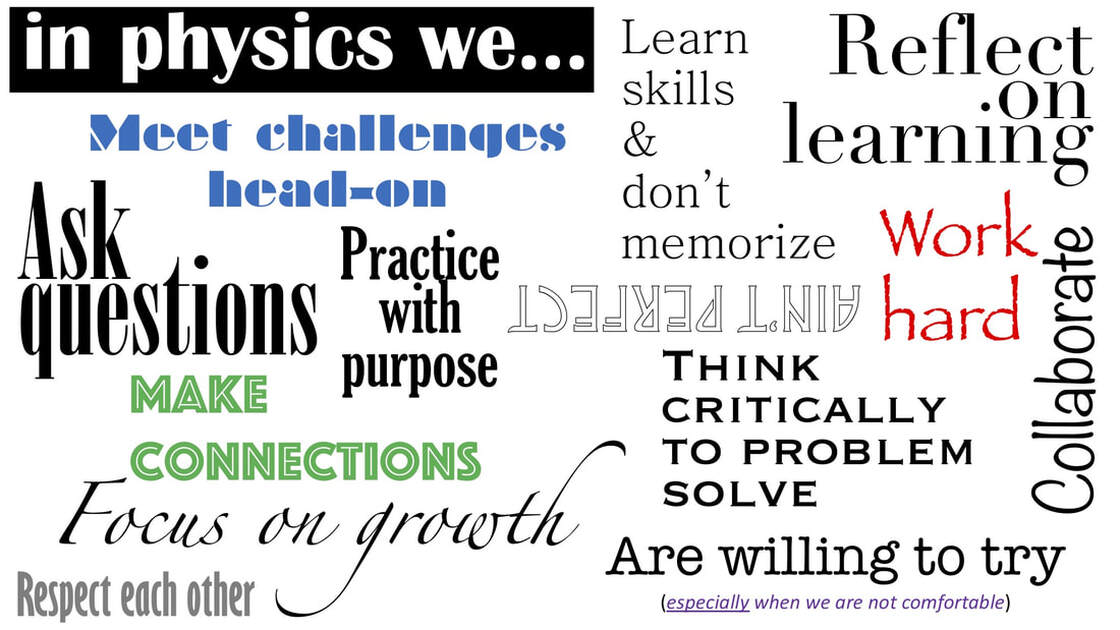Physics
Mr.Goodman
Welcome to Physics! In this class we will learn about Motion, Forces, Energy, Sound/Waves, Light, and Electromagnetism. Physics is the study of how the universe works. We will work to understand these concepts qualitatively and quantitatively. At times, it will be a struggle (but it will be worth it). You will be expected to problem solve, think critically, and predict how changing variables will change your results.
Please ask questions when you are confused.
Please come to tutoring when you need help.
Please collaborate with your classmates to work through difficult topics.
Please ask questions when you are confused.
Please come to tutoring when you need help.
Please collaborate with your classmates to work through difficult topics.
TUTORING
MONDAYS & WEDNESDAYS
8:00AM-8:25AM 3:25PM-4:00PM
(mornings & afternoons both days)
8:00AM-8:25AM 3:25PM-4:00PM
(mornings & afternoons both days)

